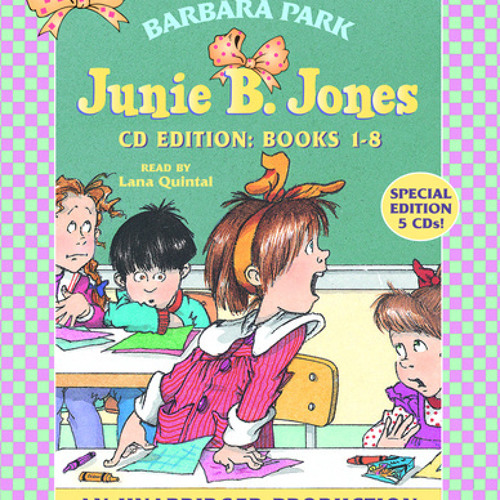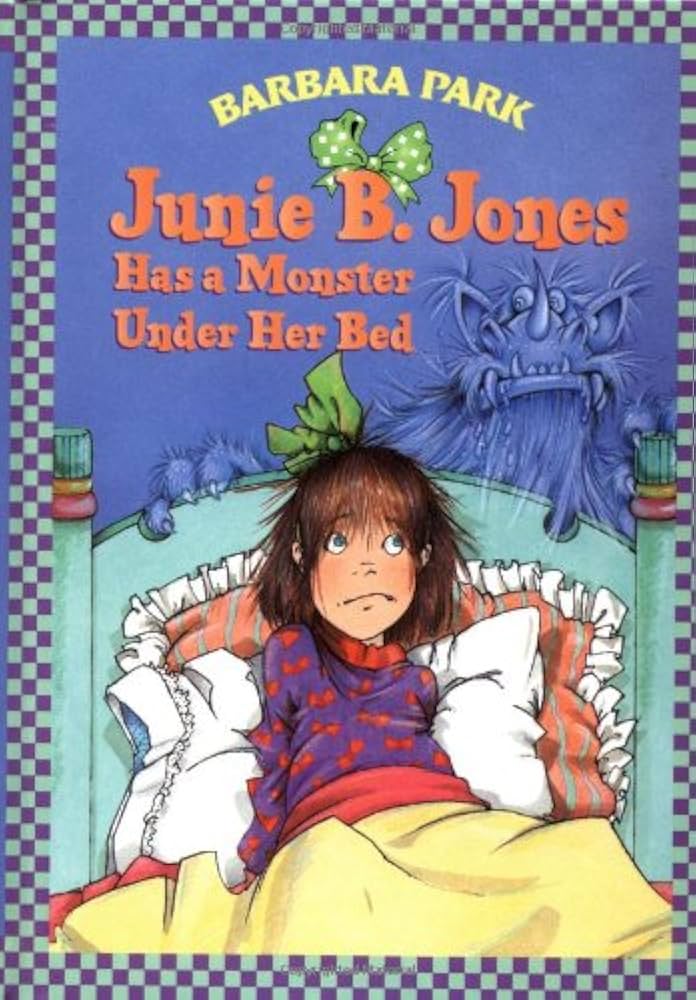Junie B. Jones Books: A Comprehensive Guide

The Junie B. Jones series, penned by Barbara Park (with subsequent additions by others), has captivated young readers for decades with its humorous and relatable portrayal of a spirited kindergartner navigating the trials and tribulations of school and life. This comprehensive guide explores the Junie B. Jones books across various aspects, examining their genre, literary influence, educational value, and lasting cultural impact.
The Junie B. Jones Literary Landscape: Genres and Themes
The Junie B. Jones books primarily fall into the children’s literature genre, specifically targeting early readers and those in the kindergarten to third-grade age range. While categorized as chapter books, their short chapters and simple sentence structure make them accessible even to emergent readers. The series is characterized by:
-
Humor: Junie B.’s often-misguided adventures are filled with slapstick humor, witty wordplay, and relatable childhood mishaps, creating a lighthearted and engaging reading experience. Her candid observations and humorous misunderstandings are a key ingredient in the series’ enduring appeal.
-
Realistic Fiction: Despite the exaggerated comedic elements, the books depict realistic scenarios that children can easily connect with. Junie B.’s experiences with school, friendships, family, and personal growth resonate with young readers, making the stories both entertaining and validating.
-
First-Person Narrative: The stories are told from Junie B.’s perspective, providing an intimate and engaging view into her world. This point of view allows readers to fully immerse themselves in Junie B.’s thoughts and feelings, contributing to the books’ relatability and charm.
-
Developmental Themes: The series subtly addresses important developmental themes. Junie B.’s journey through kindergarten and the early elementary years allows readers to witness her growth in literacy, social skills, and emotional intelligence. Issues of friendship, sibling rivalry, and overcoming fears are subtly explored, offering opportunities for discussion and learning.
-
Early Literacy: The Junie B. Jones books are expertly crafted for early readers. The use of simple language, short chapters, and engaging plots makes reading fun and accessible for young children. The predictable structure and familiar themes encourage repeated readings, further developing their reading fluency and comprehension.
The Evolution of Junie B. Jones: Beyond Kindergarten
While the early books focus heavily on Junie B.’s kindergarten experience, the series continues to follow her growth into later elementary school. Later entries often address more complex themes, including:
-
Dealing with Emotions: As Junie B. matures, the books explore a wider range of emotions, such as frustration, disappointment, and jealousy. These emotional complexities are handled with sensitivity and humor, providing young readers with a safe space to explore these feelings.
-
Social Dynamics: The complexities of peer relationships are tackled, highlighting the challenges and rewards of making and maintaining friendships. Junie B. encounters various social situations, learning about cooperation, compromise, and empathy.
-
Personal Growth: The series charts Junie B.’s personal development, showing her evolving maturity and understanding of herself and the world around her. This progressive growth offers a sense of continuity and satisfaction for readers who follow the series.
-
Graphic Novel Adaptations: A new generation of readers has been introduced to Junie B. Jones through graphic novel adaptations. These adaptations maintain the series’ humour and charm, while presenting the stories in a vibrant visual format that further enhances accessibility and engagement.
Author Spotlight: Barbara Park and the Legacy of Junie B. Jones
Barbara Park, the creator of Junie B. Jones, cleverly infused her own childhood experiences and observations into the books. Her writing style is characterized by its playful use of language, its straightforward narration, and its genuine depiction of childhood.
Barbara Park’s Writing Style: Simple but Engaging
Park’s writing style is deceptively simple. The language is accessible to young readers, but the tone is lively and engaging, keeping children entertained and wanting more. Her masterful use of repetition, both in terms of sentence structure and recurring themes, contributes to the books’ memorability and their success as early readers.
Inspirations and Influences
While the exact inspirations for Junie B. Jones remain speculative, many aspects of the character are likely drawn from Park’s observations of children and her own experiences as a child. The relatable nature of the stories hints at a deep understanding of the inner life of a young girl.

Famous Works: The Junie B. Jones Phenomenon
Barbara Park’s creation, Junie B. Jones, stands as her most famous work. The series’ widespread popularity is evident in its numerous translations, continued reprints, and enduring appeal to multiple generations of children. The books have helped shape the landscape of early childhood literature, proving that engaging and humorous storytelling can be both entertaining and educational.
Reading, Learning, and Life Lessons from Junie B. Jones
The Junie B. Jones books offer significant educational value extending beyond basic literacy. The simple storylines and easy-to-follow narratives offer:
-
Vocabulary Development: The books subtly introduce new vocabulary terms, fostering a child’s language acquisition. The repeated use of these terms in engaging contexts makes learning new words feel natural and fun.
-
Comprehension Skills: The straightforward narratives and engaging plots promote comprehension development. The familiar structure and clear storyline assist with identifying key plot points and inferring meaning.
-
Critical Thinking: While not explicitly didactic, the books encourage critical thinking. Junie B.’s mishaps and misunderstandings provide opportunities for children to analyze situations, assess consequences, and consider alternative perspectives.
-
Emotional Literacy: The books offer children valuable insights into a range of human emotions. Junie B.’s experiences with joy, frustration, fear, and jealousy encourage empathy and emotional awareness.
-
Social Skills: The depiction of Junie B.’s interactions with her peers, teachers, and family fosters social skills development. Readers can witness strategies for conflict resolution, making friends, and navigating social situations.
Life Lessons: Beyond the Classroom
Beyond the immediate educational benefits, the books deliver essential life lessons. Junie B.’s journey of self-discovery demonstrates the importance of:
-
Self-Acceptance: Junie B.’s flaws and imperfections are part of what makes her lovable. The series highlights the importance of self-acceptance and recognizing one’s unique strengths and weaknesses.
-
Resilience: Junie B. faces many challenges, both large and small. Her ability to overcome obstacles illustrates the importance of resilience and perseverance.
-
Perseverance: Junie B.’s determination to conquer her fears and resolve issues highlights the importance of perseverance. Readers can learn to embrace challenges and persist in the face of adversity.
-
Authenticity: Junie B. is true to herself, even when it might be unpopular. This showcases the importance of embracing one’s individuality.
-
Friendship: The books demonstrate the complexities of friendships, teaching readers about empathy, understanding, and forgiveness.
Junie B. Jones in Libraries: Accessibility and Preservation
The Junie B. Jones books are widely available in public libraries around the world, providing an essential resource for young readers. Their presence in digital libraries and educational institutions further expands their accessibility.
Public Libraries: A Cornerstone of Early Literacy
Public libraries play a significant role in making these books accessible to children from diverse socioeconomic backgrounds. The availability of Junie B. Jones in libraries provides equal opportunities for reading and learning, irrespective of personal financial means.
Digital Libraries: Expanding Reach and Engagement
The digital availability of the Junie B. Jones books through online libraries and e-reader platforms extends their reach to children and families beyond traditional brick-and-mortar libraries, ensuring ongoing access to this influential series.

Rare Collections and Archives: Preserving Literary History
While the Junie B. Jones books are widely available and not yet considered “rare,” the potential for future archiving within academic and specialized libraries ensures the preservation of this popular body of children’s literature for future generations of scholars and readers. The series’ enduring popularity indicates its potential for future study as a significant influence on the landscape of children’s literature.
The Enduring Cultural Impact of Junie B. Jones

The cultural impact of the Junie B. Jones books is substantial. The series:
-
Literary Influence: Junie B. Jones has inspired numerous other works of children’s literature, demonstrating the enduring appeal of her character and her unique voice. The series has served as a blueprint for subsequent authors engaging with similar themes and narrative structures.
-
Adaptations: Beyond the graphic novel adaptations, the books have been adapted into stage productions and animated series, further solidifying Junie B.’s cultural significance. These adaptations broaden the reach of the series, introducing the character and her stories to new audiences across various media.
-
Awards and Recognition: While not always associated with prestigious literary awards, the books have received significant recognition through sales figures, sustained popularity, and the acclaim they’ve achieved in children’s book review circles. This ongoing recognition solidifies Junie B.’s cultural status.
-
Communities: Junie B. Jones has fostered strong reader communities, particularly among children and their parents. The books have sparked countless discussions about childhood experiences, family dynamics, and school life. These communities serve as testament to the books’ enduring ability to connect with readers on a deep emotional level.
The Junie B. Jones series stands as a significant achievement in children’s literature. Its blend of humor, relatability, and educational value has made it a beloved classic for multiple generations. The books’ accessibility in various forms – print, digital, and adaptation – ensures that Junie B. Jones will continue to entertain and enlighten young readers for years to come.